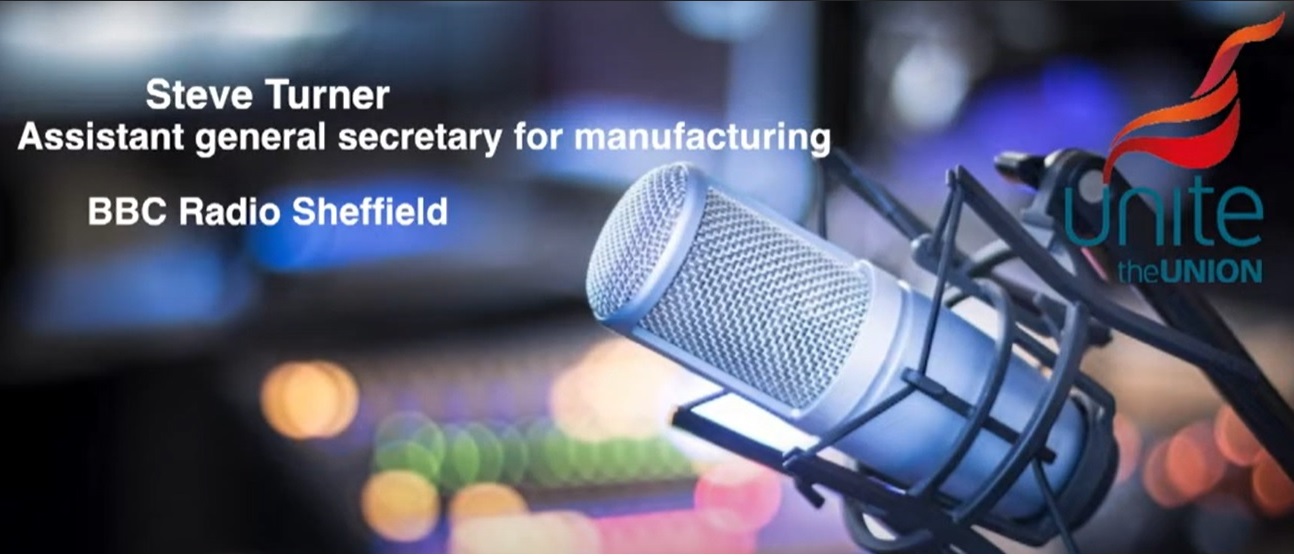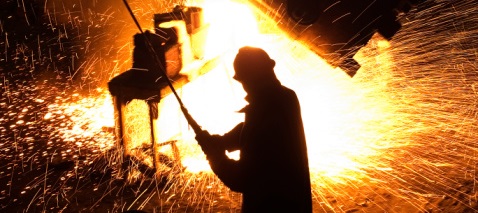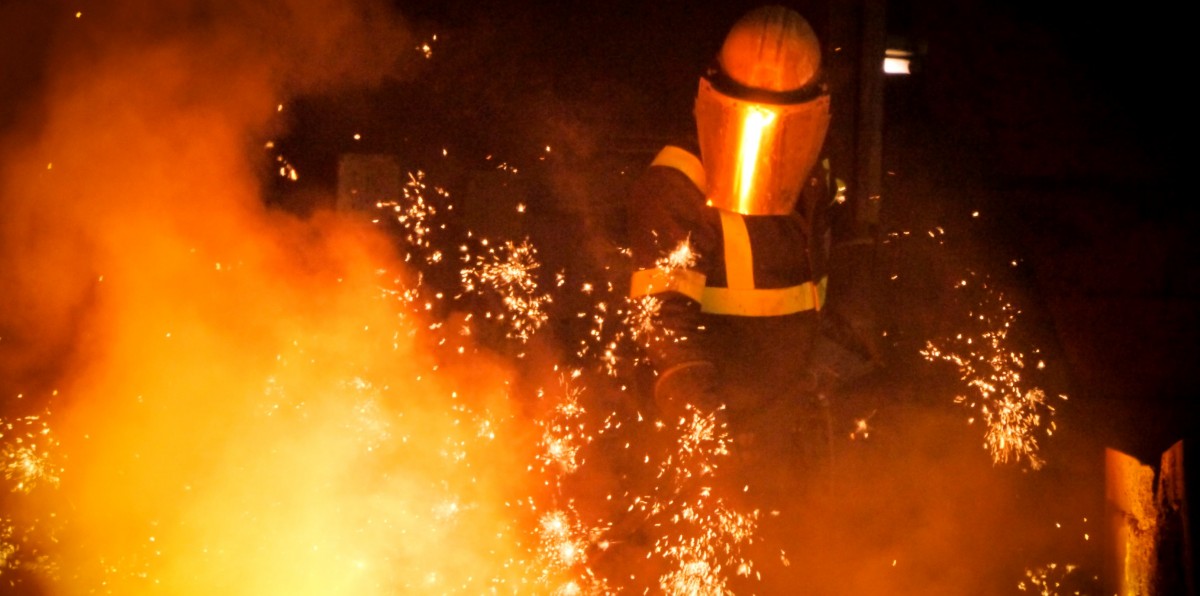“See us through this storm”
Steelworkers are continuing their campaign to save the industry today (April 4) as steel unions held emergency talks this afternoon.
The talks come on the eve of the government’s woefully belated reaction to the news last week that Tata Steel would be selling its entire UK business, which sent shockwaves throughout the country.
Business secretary Savid Javid returned from Australia on Friday (April 1) and addressed steelworkers in Port Talbot who demanded assurances that the government will step in and not allow the entire industry to collapse.
UNITElive caught up with the Unite shop stewards from across the country who gathered at today’s meeting at the TUC headquarters in London.
Unite member Kate Jauncey, a Port Talbot works engineer, joined a Unite steel workers delegation in Parliament only months ago in support of her colleagues in Scunthorpe and Redcar.
“And now as we predicted, the crisis has come to us,” she said. “And the government has done practically nothing as far as we can see.”
Jauncey described her community as being in a “state of shock” after the news came Wednesday that Tata Steel planned to sell the Port Talbot works.
“We thought they were talking about a plan that was already happening – a lot jobs were lost through that,” she said.
Indeed, more than 1,000 people were made redundant as part of a turnaround plan that, steel workers hoped, would make the loss-making plant in Port Talbot a profitable one in two years’ time.
What many steelworkers thought was a Tata board meeting to discuss the future of this rescue plan turned into workers’ worst fears – Tata selling its entire UK operations.
Jauncey expressed frustration that the workforce was kept in the dark for so long.
“It appears now that there’s been talk of a sale going on for months, and now we may have only weeks of production left,” she said.
“My fear is that the [Port Talbot] site as a whole is at risk,” Jauncey noted. “It appears that nobody wants to look after the blast furnaces. One of them is very new, and one of them is the most efficient in Europe.
“That’s a shame because these furnaces represent true steelmaking capacity. It looks like the interested parties may only be interested in the downstream bits of the company.”
Like Jauncey, Unite member Mike Davis, an electrician at Tata Steel in Llanwern, fears the worst, not only for his local plant but for every site that is now at risk, which could mean the loss of more than 40,000 jobs.
“The entire steel industry in the UK is at stake,” he said. “It’s not just regional or plant by plant. It’s a fundamental industry and I think the government should understand that there is both an economic and a social responsibility here around this business.
Pressure
Unite shop stewards all said that they were hoping to take their campaign forward after today’s meeting and continue putting pressure on both the government and Tata Steel to do the right thing.
Unite convenor at the Port Talbot steelworks Dave Bowyer hoped that today steel unions could find “some kind of direction moving forward.”
“The company has to be challenged as being an ethical company,” he said. “They have a code of conduct that they have to follow and that’s not to jump ship straight away because we need finance in order to keep producing in Port Talbot so that we can be sold as a viable company and not a company that’s caput.”
Bowyer also identified concrete steps that the government can take now, including providing the steel sites a â€bridging loan’ that would enable them to keep operating until market conditions have improved. He also called for a serious procurement policy.
“It’s all very well asking businesses to use British steel,” he said. “But that’s not the case – they need to be instructed to buy British.”
He also noted that the government reducing gas, electricity and carbon costs, when taken together with procurement and financial assistance, would “see us through this storm and we may then come out the other end.”
Unite member Ralph Jones, a Tata Steel engineer in Scunthorpe, described his community’s insecurity hovering over the impending deal between Tata and investment firm Greybull, which is in negotiations to buy Tata’s Long Products Division.
“Greybull are supposedly buying us out but our concern is – are they going to pull out at the last minute?” he said. “We are still unsure of our futures so until that deal is actually signed that says â€yes Greybull is taking over’ there will continue to be a lot of uncertainty.
“Scunthorpe originally had 25,000 employees on the steelworks and we’re now down to the last 4,000,” Jones noted.
Integral
Responding to those who say that steel workers must simply accept the industry’s demise, Jones explained just how integral steel was to entire communities, including his own.
“It’s alright from them to say â€you can go and work in Morrison’s for ÂŁ7 an hour’ but these lads have got mortgages on their houses based on a ÂŁ30,000 salary,” he said.
“They’re not going to find another job that pays that. Their homes are at stake. And how is everyone going to work in shops when there’s no money and therefore no one to buy anything? The whole town and community are relying on that steelworks.”
Unite rep Les Price, of the Shotton works in North Wales, agreed. He explained just how urgent the situation now is.
“The whole of the industry is now at stake,” he said. “I’ve worked in it 36 years and I’ve never, ever known a set of circumstances that meant a situation that we’re in currently. It looks potentially like the end of the industry.
If the industry is to be saved, noted Rotherham steelworker and Unite SIMA vice chair Andy Thomson, unions will play an absolutely essential part.
“As we’ve seen over the past year, unions have been front and centre in pushing for an understanding of the issues that we face,” he said. “I think without unions, government would have even less of an idea about the scale of the steel crisis. I think unions are key to finding a buyer for the steel sites; and they’re key in protecting our terms and conditions when a sale hopefully comes along.
“As a union, we’re vital to the survival of our industry – just as much as the government is.”
 Like
Like Follow
Follow


